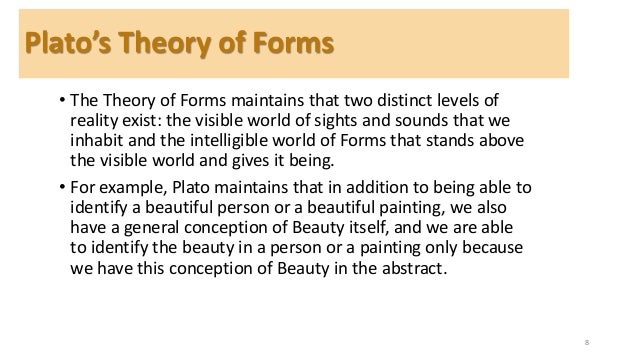

He is genuinely seeking the truth of the matter. Socrates would not have us believe our questions have no correct answers.

Understood in this way, Euthyphro provides a classic argument against Divine Command Theory, a view about the nature of morality that says that what is right is right simply because it is commanded by God. The dialogue works the same if we substitute moral goodness for piety. Socrates and Euthyphro never conclusively discover what piety is, but they learn much about how various attempts to define piety fail. In this dialogue, Socrates and Euthyphro are discussing the nature of piety or holiness. In Plato’s dialogues we often find Socrates asking about the nature of something and then critically examine proposed answers, finding assorted illuminating objections that often suggest next steps.
#Platonic notion definition how to#
While revealing the ignorance of his interlocutors, Socrates also shows how to make progress towards more adequate understanding.Ī good example of the Socratic Method at work can be found in one of Plato’s early Socratic dialogues, Euthyphro. Socrates uses the dialectic to discredit others’ claims to knowledge. Further reformulations are offered, and so forth. Socrates raises a more refined objection. Instead, his criticism of the Sophists and his contribution to philosophy and science came in the form of his method of inquiry.Īs the Socratic Method is portrayed in Plato’s Socratic dialogues, interlocutor proposes a definition or analysis of some important concept, Socrates raises an objection or offers counter examples, then the interlocutor reformulates his position to handle the objection. But he did not advance any ethical doctrines or lay claim to any knowledge about ethical matters. He pursued rational inquiry as a means of discovering the truth about ethical matters. Socrates was not an epistemic or moral relativist. The epistemic and Moral Relativism of the Sophist has become popular again in recent years and has an academic following in much “post- modern” writing. For the epistemic relativist, the value of reason lies not in revealing the truth, but in advancing one’s interests. According to the Sophists, rather than providing grounds for thinking some beliefs are true and others false, rational argument can only be fruitfully employed as rhetoric, the art of persuasion. Since earlier attempts at rational inquiry had produced conflicting results, the Sophists held that no opinion could be said to constitute knowledge. Rather, ethical judgments can only be made relative to one or another system of moral beliefs and no system can be evaluated as objectively better than another. The moral relativist takes there to be no objective grounds for judging some ethical opinions to be correct and others not. Moral Relativism is the parallel doctrine about moral standards. In cases like this, epistemic relativism seems quite absurd, yet many of us have grown comfortable with the notion that, say, beliefs about the moral acceptability of capital punishment might be true for some people and not for others. To take a rather silly example, if I think it’s Tuesday, then that’s what’s true for me and if you think it’s Thursday, then that’s what is true for you. Epistemic relativism marks no distinction between knowledge, belief, or opinion on the one hand, and truth and reality on the other. Roughly, this is the view that what is true for me might not be true for you (when we are not just talking about ourselves). Rather, epistemic standards of reasoning are relative to one’s point of view and interests. Epistemic relativism is the view that there is no objective standard for evaluating the truth or likely truth of our beliefs. Among the Sophists, this skepticism is manifested in epistemic and Moral Relativism. The conflicting views of the Ionian and Eleatic philosophers of nature encouraged skepticism about our ability to obtain knowledge through rational inquiry.

Socrates claimed to hear a divine inner voice he called his daimon and he was prone to go into catatonic states of concentration. He was a distinguished veteran who fought bravely on Athens’ behalf and was apparently indifferent to the discomforts of war. He was eccentric, poor, ugly, brave, stoic, and temperate.


 0 kommentar(er)
0 kommentar(er)
